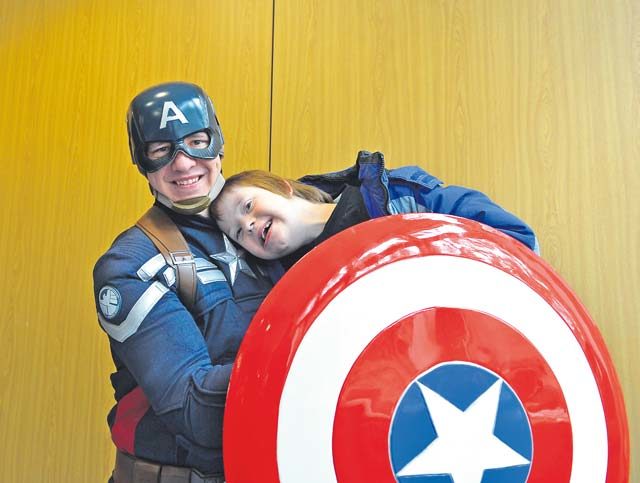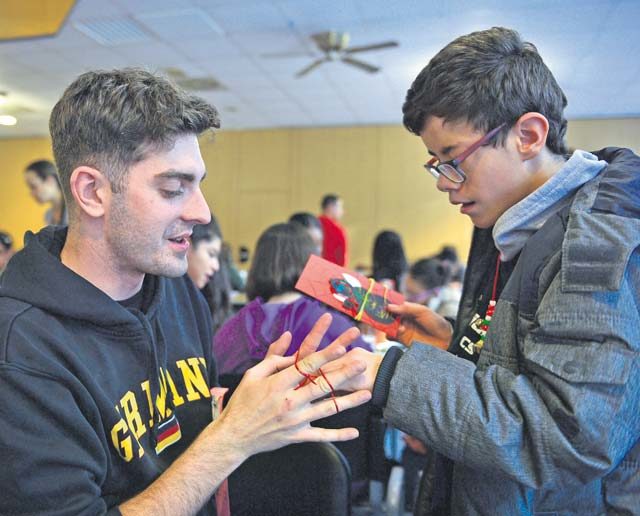
Volunteers from the KMC helped put smiles on children’s faces Dec. 2 on Vogelweh.
KMC educators, military members and local nationals worked together to host the annual Winter Special Olympics bowling and arts-and-crafts event.
The event aimed to encourage self-confidence in children with special needs, for both U.S. military dependents and local nationals.
“The purpose of the event is for students with intellectual disabilities to have an opportunity to participate in a modified sporting event,” said Wanda Castillo, president of the KMC Special Olympics committee. “These events are heartwarming when you see the students laughing and interacting with their peers. This offers the students an opportunity to interact with peers and adult buddies using communication and social skills, a chance to enhance self-confidence and an opportunity to shine at their ability levels.”
The volunteers served in different roles, such as translators, door guards, lane watchers and special guardians known as buddies.
The buddies were the participants’ companions for the day.
“In many ways, a lot of the volunteers have never volunteered with an event such as this,” Castillo said. “This offers the volunteers an experience of understanding to a part of our community that is often not involved with other activities.”
The participants were divided into two groups, where they both bowled and created arts and crafts.
Even though many of the participants were from the local community, this was not a barrier between them and the volunteers, said Airman James Coolbaugh, 86th Munitions Squadron tactical aircrew rapid response packages crewmember. Coolbaugh said he formed a bond with his new German friend even though they do not speak each other’s language.
“I might have been a little nervous coming into it,” Coolbaugh said. “But it was a great time. The kid I was working with spoke only German. It’s unfortunate that we couldn’t communicate better, but it was definitely fun.”
Even though Coolbaugh did not have a lot of experience working with special needs children before this event, he said he learned to see them in a new light after this experience.
“The best thing I think to do is to just treat them like they’re any other normal kid,” Coolbaugh said. “That’s the way they want to be treated, and that’s how they should be treated. And if you treat them like that, then they’ll have a normal life just like everyone else.
“Don’t treat them like they’re fragile, because they’re self-sustaining human beings just like the rest of us,” Coolbaugh added.
The cooperation between the Germans and Americans in the event stands as a testament to the two communities’ commitment to helping children with special needs feel loved and valued.



